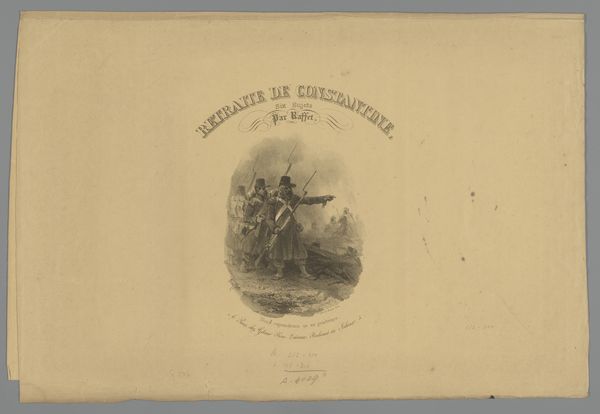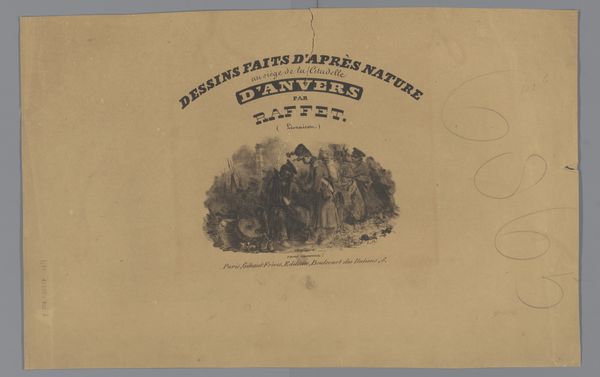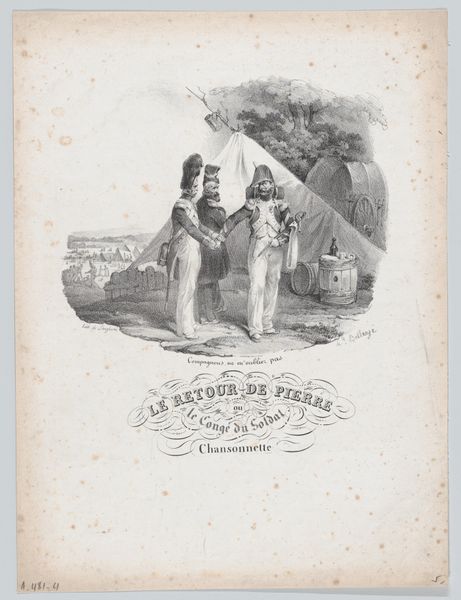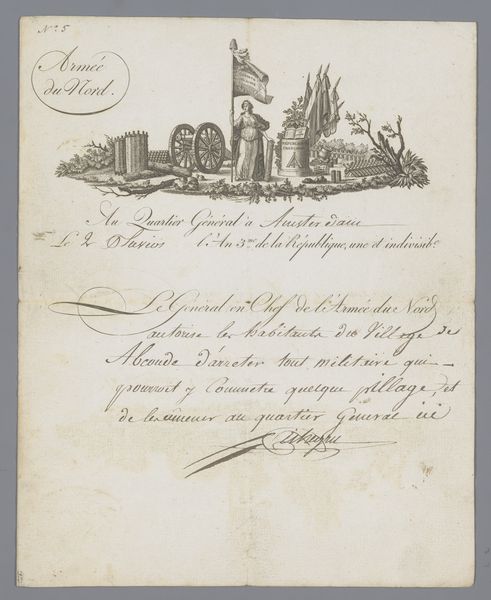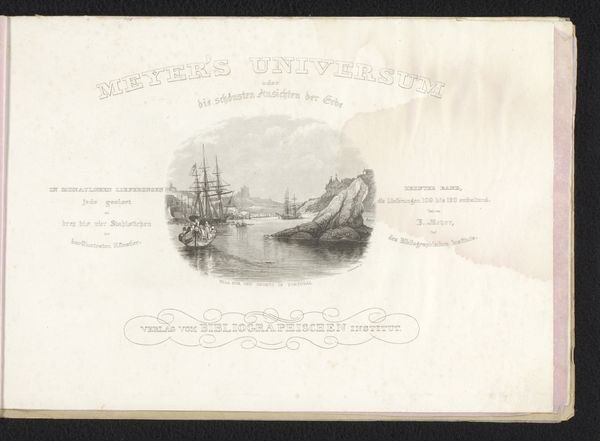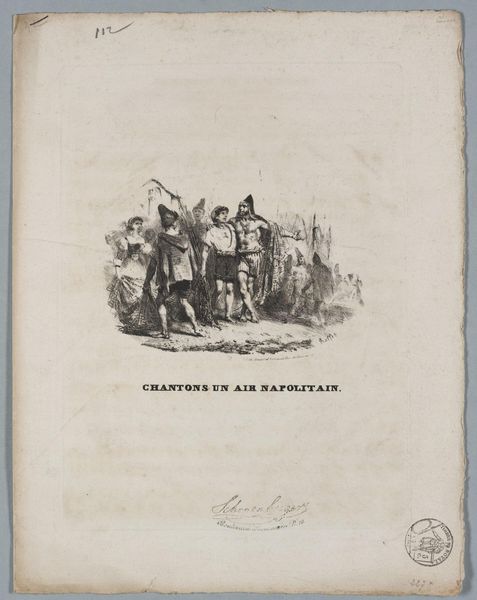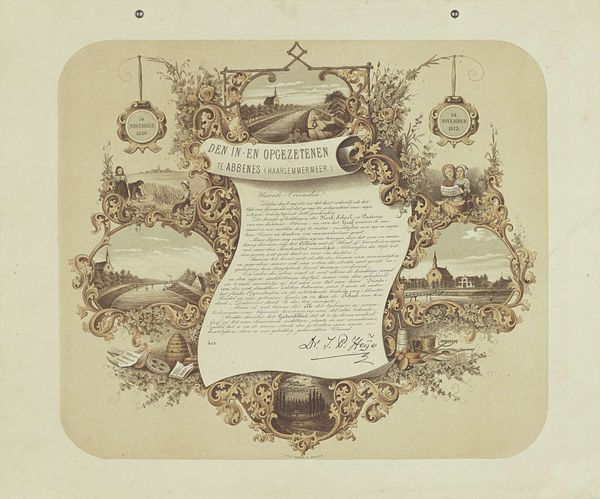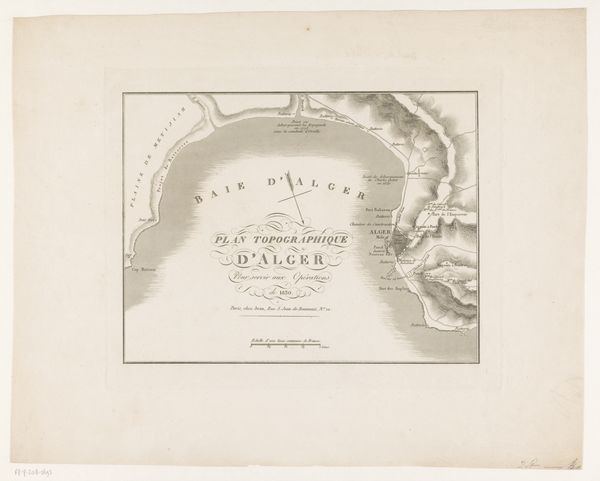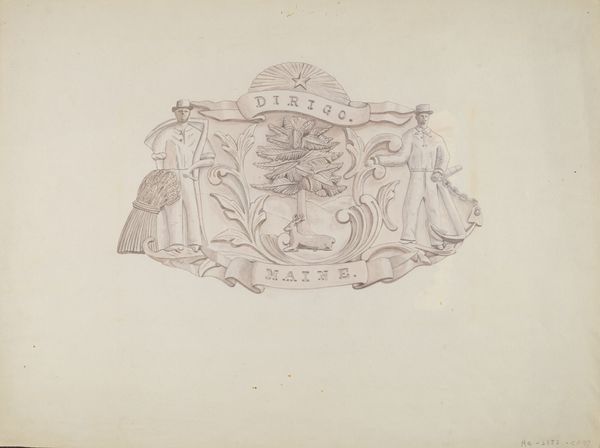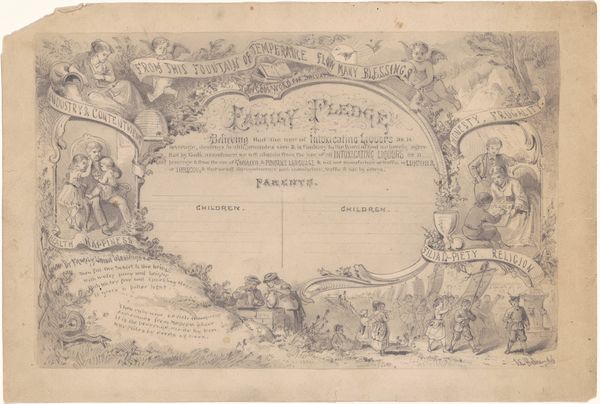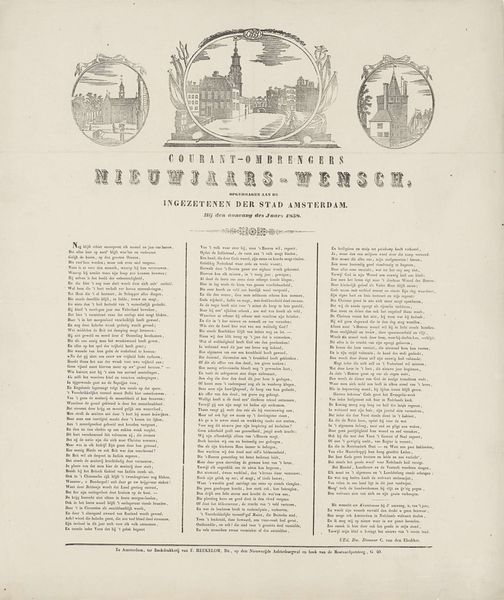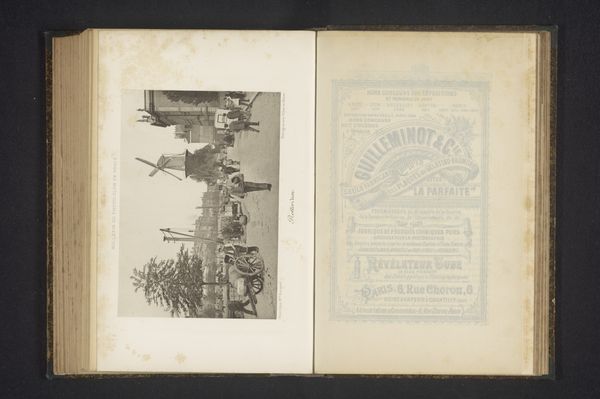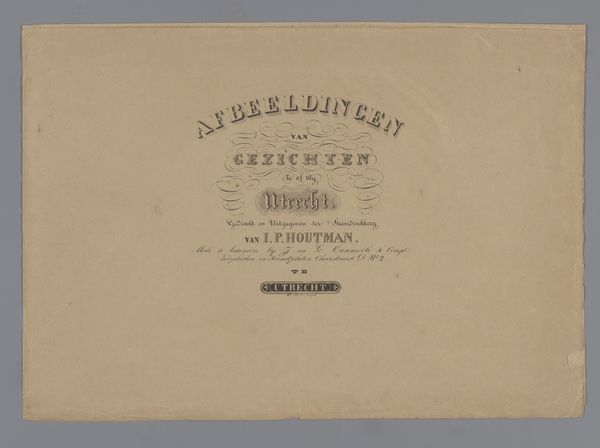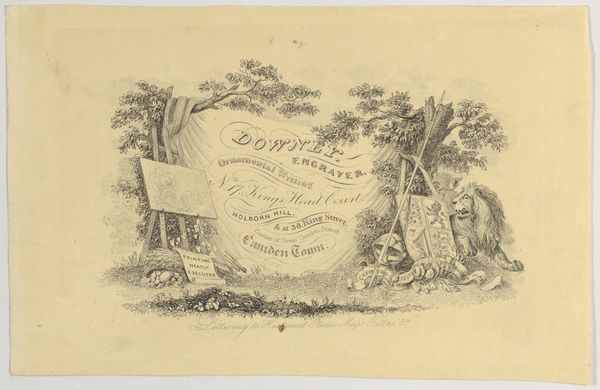
print, engraving
#
narrative-art
# print
#
romanticism
#
cityscape
#
history-painting
#
engraving
Dimensions: height 376 mm, width 552 mm, height 742 mm, width 551 mm
Copyright: Rijks Museum: Open Domain
Editor: So, this is the cover for "Omslag voor twaalf prenten over de inname van Constantine," made in 1838 by Auguste Raffet, using engraving as a medium. At first glance, the monochromatic palette and depiction of battle wreckage evoke a solemn, almost melancholic feeling despite the triumphant title. How would you interpret this work? Curator: Ah, yes, Raffet. He was such a fascinating character, wasn't he? I see this less as a purely historical document, and more as Raffet grappling with the very notion of victory and its cost. That lone figure standing amidst the carnage... isn't there something inherently contradictory in celebrating conquest? I find myself wondering, what kind of "triumph" leaves such a trail of devastation in its wake? The romanticism, it's all smoke and mirrors, isn’t it? Editor: That's interesting! I hadn’t considered the inherent critique. The flag initially struck me as a symbol of victory, but now it feels… tainted. Almost like a burden. Curator: Exactly! Raffet was never one for simple narratives. He captured the zeitgeist through a subjective, slightly off-kilter lens. Did he admire military prowess, or did he fear its consequences? Maybe it was both? And isn't that the beautiful contradiction we find at the heart of humanity itself? It's almost as if he's challenging us to question our own romantic notions of warfare. What do *you* think he aimed to express with the composition? Editor: Perhaps a kind of troubled pride, a blend of nationalistic fervor and a mournful acknowledgement of the price of progress…It gives me much to reflect on. Curator: Indeed. And isn't that the best kind of art, really? The kind that keeps us up at night, turning ideas over and over in our minds, wrestling with our own beliefs? Thank you, Auguste Raffet!
Comments
No comments
Be the first to comment and join the conversation on the ultimate creative platform.
